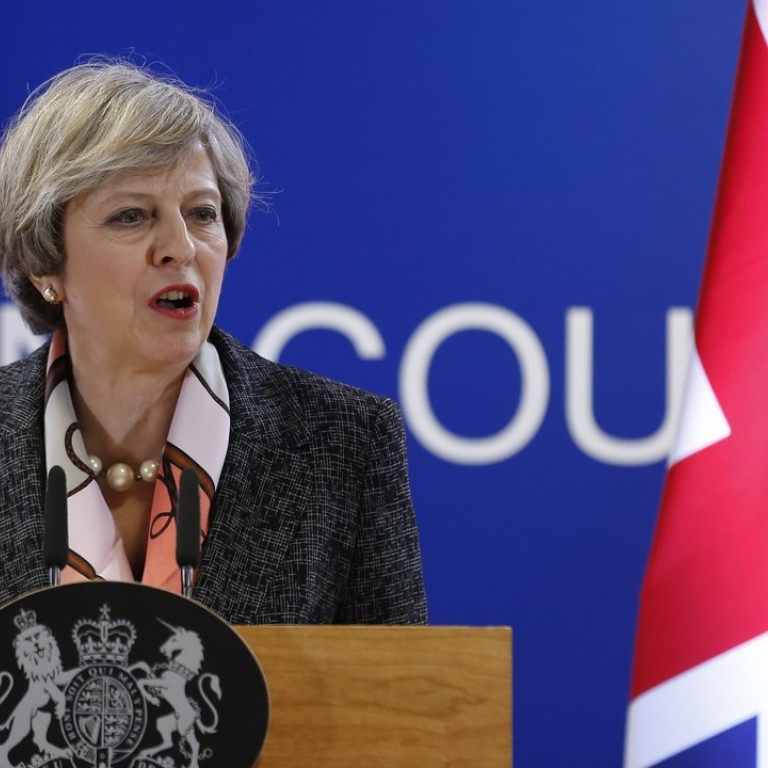
Poll result gives Theresa May a chance to rethink Brexit strategy
Britain and the EU will be both want to be seen as ‘winners’, making a soft Brexit – with some kind of access to a single market – more likely
Britain is due to begin negotiations to exit the European Union in a vastly different political landscape from last year, when it voted 52 per cent to 48 per cent for Brexit. Prime Minister Theresa May called a snap election earlier this month because opinion polls led her to believe she would win a big parliamentary majority and a powerful personal mandate to negotiate the divorce. A poor election campaign, a strong showing by Labour Party leader Jeremy Corbyn and a shift in voter sentiment towards Europe resulted in a humiliating reverse. May has been left with weakened authority over a Conservative Party that has lost its outright parliamentary majority and has been forced to negotiate a governing coalition.
Having gambled and lost, she must now put the wider national interest before narrow party and personal interest. That means negotiating a so-called soft Brexit that takes account of the views of the 48 per cent who voted to remain in Europe, and working with other parties as well as the hardliners in her own party.
How she must rue the electoral miscalculation, since a strong mandate would have made it easier to deal with the Tory hardliners, which is what her predecessor, David Cameron, had in mind when he called the fateful referendum. The election result sets the scene for May to rethink her Brexit stance. She was, after all, a remain campaigner in the referendum who, along with most like-minded MPs, accepted the result and that they would have to support Brexit.
Her hard line would take the UK out of core European concepts such as the single market and open borders, without regard for the continuing importance of immigration and mobility of talent to Britain’s economy. Indeed, how the issue of the rights of EU nationals in the UK and Britons in Europe is handled could set the tone of the negotiations.
That said, both sides have been talking tough ahead of the plunge into the uncharted waters of an exit from the EU. When it actually comes down to it, they can only come closer together if they are both to come out as “winners”. That makes a deal with some kind of access to a single market more likely, an outcome also easier to justify after the election result from a larger than usual voter turnout.

